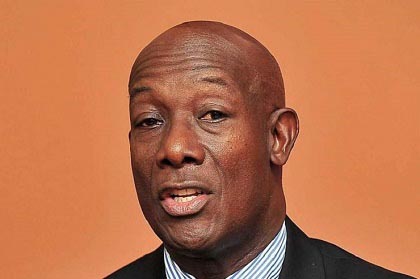(Trinidad Guardian) Public health restrictions implemented a month ago to roll back on the reopening of the economy as the country’s COVID-19 spread worsened will be extended for another four weeks, Prime Minister Dr Keith Rowley announced on Saturday.
Government partially rolled back on the reopening of the country from August 16, reducing the number of people allowed to gather from ten to five, closing beaches, rivers and water parks, stopping in-house dining and making the wearing of masks in public mandatory. Since then there have been more than 2,200 positive COVID-19 cases recorded and at least 38 deaths. But while Dr Rowley and Ministry of Health officials believe without the restrictions the numbers would be higher they don’t believe the country is yet in a position for the measures to be lifted.
Technical Director of the Ministry of Health’s Epidemiology Division, Dr Avery Hinds, said there are hints that the measures are beginning to work but they need more time.
“We’re beginning to see signs that fewer and fewer people on our daily counts—not the ones that show up in the press releases that may have numbers across few days—but on the daily counts we’re starting to see where those numbers are starting to look a little more favourable although they’re still increasing. So we’re at the point where we are encouraged to hold the course. We’re encouraged to continue doing what we’re doing,” he said.
The restrictions will stay in effect until October 11 but Dr Rowley said a review will be done in two weeks on September 28. No new restrictions were added to the regulations but there will be some tweaks. According to the Prime Minister, citizens can expect increased vigilance by the police.
“I’ve said to my colleague, the Minister of National Security, while it’s not feasible to lock up everybody who’s playing the fool and who’s breaking the law or breaching the regulations, we really only have left serious sustained law enforcement because there are people in this community who only understand the heavy hand,” he said.
In referencing a recent public discourse over a perceived disparity in upholding the regulations at a pool party in Bayside Towers last Sunday, Dr Rowley said: “In Trinidad and Tobago, we expect that the law would be applied to every person regardless of race, colour, creed, class or social standing. People who are partying and spreading this virus must feel the full brunt of the law in Trinidad and Tobago.
“It is not up to me to tell the Commissioner of Police who to arrest and not to arrest or how to apply the law but as Prime Minister, I could tell the Commissioner of Police that the law must be applied to protect us in Trinidad and Tobago from those who are not prepared to listen and fight the kind of fight we want to be fighting to bring this virus under control. We can do no more but we can do the most with what we have.”
Drawing off of the Bayside Towers incident where over 40 people were at a pool party, Minister of National Security Stuart Young said while they were not able to arrest or charge individuals due to the dispute over private versus public property, there are avenues through which the police can treat with similar situations going forward.
“The police would be very cautious as to getting involved into private property, as they rightly should be, but they do have jurisdiction and in certain instances, they could be invited by others to come into the private jurisdiction and to enforce the law,” Young said.
“There are a number of common laws, as well, and common law charges and common law offences where they can be called upon to protect persons.”
During the continued of restriction, Finance Ministry staff who have a role to play in the October 5 budget preparations will be deemed essential and required to attend work. Included in the regulations will also be a map instructing providers of public transport such as maxi taxi’s how they can seat passengers to maximise on social distancing.






